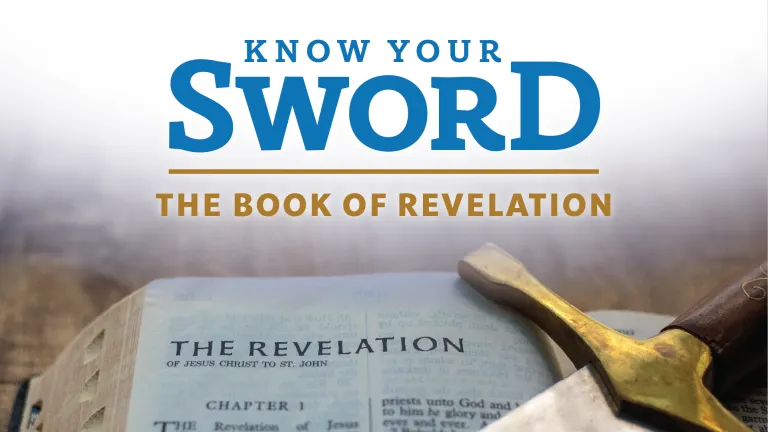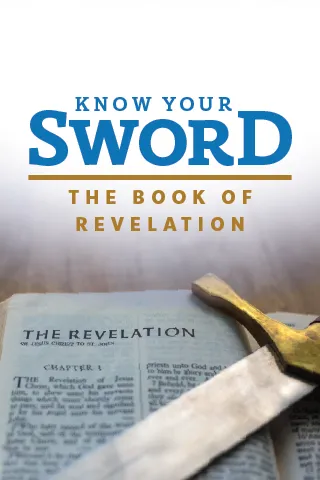Revelation Part 21

God held the scroll, and the question is proclaimed by an angel, “Who is worthy to open the scroll and to loose its seals?” The Lion of Judah, the Lamb of God, took the scroll, as He alone can break its seals. With this act, the events of the end of the age will be set in motion.
In Revelation 5 John sees that in the right hand of the One seated on the throne there is a scroll, written inside and on the back. Like a set of blueprints or a stamped drawing, it is complete and final containing the detailed design of the Master Architect. It is sealed with seven royal seals, and no one is found worthy to open it, not even to look upon it. Revelation 5:2-3 says, “Then I saw a strong angel proclaiming with a loud voice, ‘Who is worthy to open the scroll and to loose its seals?’ And no one in heaven or on the earth or under the earth was able to open the scroll, or to look at it.” This is not a human document. It is not the Revelation of John, nor the construct of any man. It cannot be counterfeited or tampered with. Its contents have never been revealed. The completion of human history and the transition into the Kingdom of God are locked within it.
John weeps when no one is found worthy. His disappointment shows his yearning to know the contents, but the scroll cannot be opened by any ordinary being. Then the announcement comes: “Behold, the Lion of the tribe of Judah, the Root of David, has prevailed to open the scroll and to loose its seven seals.” This is Christ, the conquering Lion and the promised Son of David. Genesis, Numbers, Isaiah and Revelation all point to Him as the Lion of Judah. At the same time, He appears to John as a Lamb that had been slain, bearing the marks of His sacrifice. The paradox is profound: Christ is both Lion and Lamb. He triumphed not by worldly power but by His innocent death and resurrection. In Him alone rests the authority to open the scroll, for He has already overcome sin, death and Satan’s dominion.
The Lamb who approaches the throne bears seven horns—symbolizing perfect might and authority—and seven eyes, representing the fullness of the Spirit of God: wisdom, understanding, counsel, might, knowledge, fear of the Lord and righteous judgment. He is all-seeing, all-knowing, all-powerful. Unlike the surveillance states of man, Christ’s watchful eyes are not for control but for justice, mercy and truth. When He takes the scroll from the hand of the Father, it is a formal passing of authority, affirming His dominion over the universe as Son of Man.
The moment He takes the scroll, worship erupts. The twenty-four elders fall down before the Lamb, each with a harp and golden bowls of incense—the prayers of the saints. Our prayers, rising like incense before God, are woven into this heavenly scene. They include the cries of martyrs, the pleas for His Kingdom to come, the petitions of His people across time. And then they sing a new song: “You are worthy to take the scroll and to open its seals; for You were slain, and have redeemed us to God by Your blood out of every tribe and tongue and people and nation. And have made us kings and priests to our God; and we shall reign on the earth” (verses 9-10). Here the theme of redemption takes center stage—Christ’s blood purchasing and setting free those bound in sin, not only from Israel but from all nations. The redeemed are not destined to float in heaven but to reign with Christ on earth as kings and priests, a chosen people, a royal priesthood.
The chorus of praise grows, swelling from the elders and living creatures to the voices of hundreds of millions of angels, until all creation joins in: “Blessing and honor and glory and power be to Him who sits on the throne, and to the Lamb, forever and ever!” (verse 13). Creation itself groans in eager anticipation of this moment, when the authority of Christ is publicly affirmed and the scroll of history is placed in His hands. The praise ends with a resounding “Amen!”—a heartfelt, emphatic approval that all heaven and earth agree with God’s plan.
And so, the stage is set. The Lamb alone holds the scroll, and He alone can break its seals. With this act, the events of the end of the age will be set in motion. In chapter 6, we will watch as the seals are opened, one by one, and the divine plan written from before the foundation of the world begins to unfold before John’s eyes.
UYA Team | uya@ucg.org
United Young Adults (UYA) primarily serves the 18–32-year age group for the United Church of God. There are three main areas of contribution to the lives of the young adults: Promoting Spiritual Growth, Developing Meaningful Relationships and Making the Most of Your Talents. The Know Your Sword series is a daily expository message introducing God’s Word from a trusted perspective.



